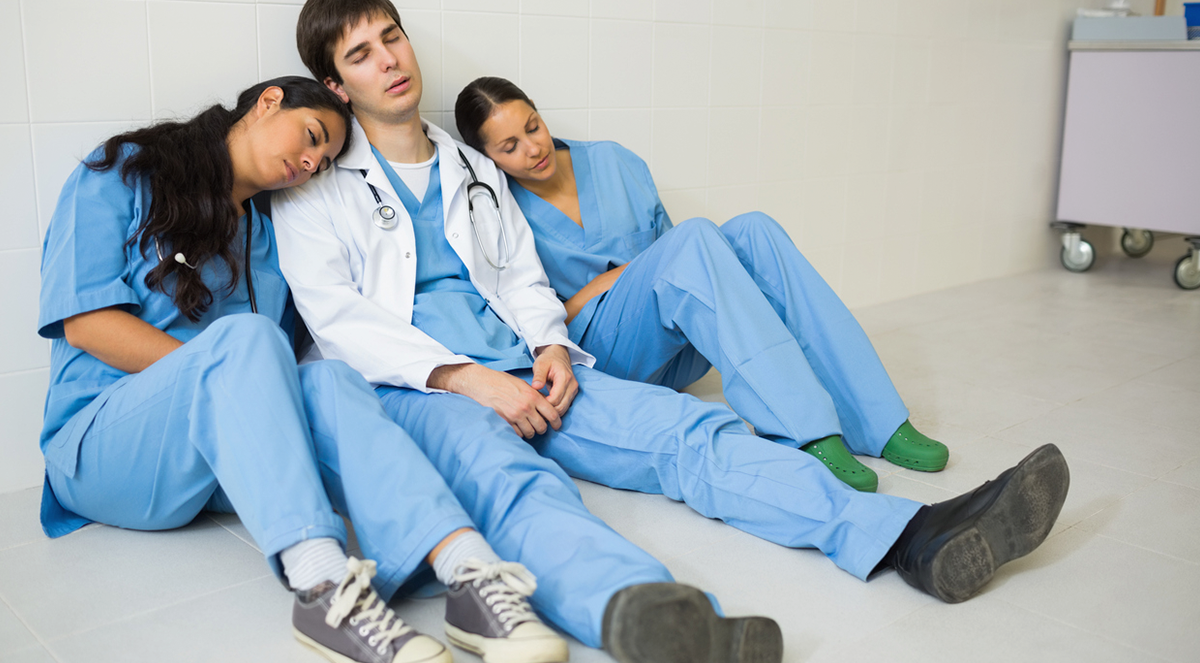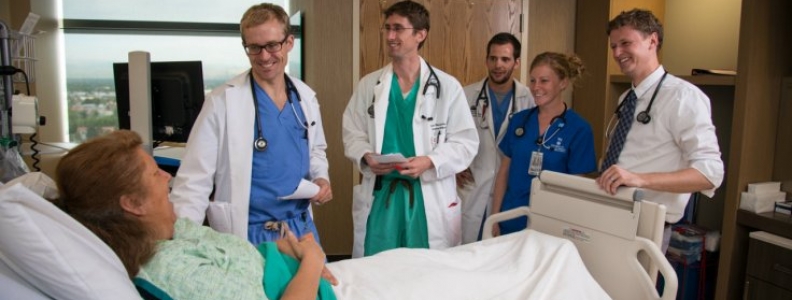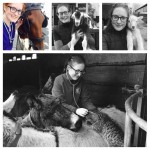Current Medical Student, Chloe, explains what it is like to do rounds while on rotations in a hospital
Thanks to popular TV shows like ER and Grey’s Anatomy, we’ve all heard of rounds. Though never actually explained, we have a basic understanding that it’s something to do with doctors gathering and discussing patients.
Ward rounds generally happen every morning in hospitals – however, they can occur up to twice a day for critically ill patients in acute hospitals, or as little as once a week in long-term patients in community hospitals. Each day relevant healthcare staff such as doctors and nurses will gather at a set time and location to begin the ward round. For surgical teams, this usually means gathering at the early hour of 7am; for medical teams, a slightly more favourable hour of 8-9am is the norm.

The group will go around to individual patients to ask them how they are doing, assess the current status of their condition, and discuss any changes in their care (both with other members of the medical team and with the patient themselves). Usually an intern or SHO will present the case and any updates on the patients condition to the Consultant or Registrar leading the ward round, who will then decide how to proceed. Depending on how spread out the patients are, the ward round could literally consist of one ward, or it could cover a mixture of patients from several wards. While surgical ward rounds start earlier, they tend to be short and sweet, and can sometimes finish within 30 minutes; medical ward rounds on the other hand, though starting later, tend to stretch on significantly longer, up to 3-4 hours in some specialties!
As a medical student, ward rounds are a handy way of getting to know your team, and more importantly a handy way of them getting to know you! By going to ward rounds, they will know your face, and are more likely to help you out with tutorials or when you need to practice presenting cases. It’s also a good way to get a quick overview of what patients are assigned to your team – you’ll probably be coming back later to do longer histories on the more interesting ones, so it’s good to know where they are!
Grand rounds, on the other hand, happen once a week. There is a Surgical and a Medical Grand Round – once again, the surgical cohort are expected to start earlier, and again, finish much faster. The medical cohort are once more late to start and late to finish. Grand Rounds usually last around an hour, during which time 2-3 people will present. The presentations range from case studies and discussions, information about a treatment or technique, or just an update on the latest research. As a medical student, these can be a bit hit and miss – sometimes they are hugely informative and tie in with your core medical education, other times it can be too specific and detailed to be of any real benefit at this stage in our careers. Definitely worth going to though – in a few years we’ll be the ones under the spotlight presenting!
To find out more about studying Medicine in UCD visit the MyUCD website here.






